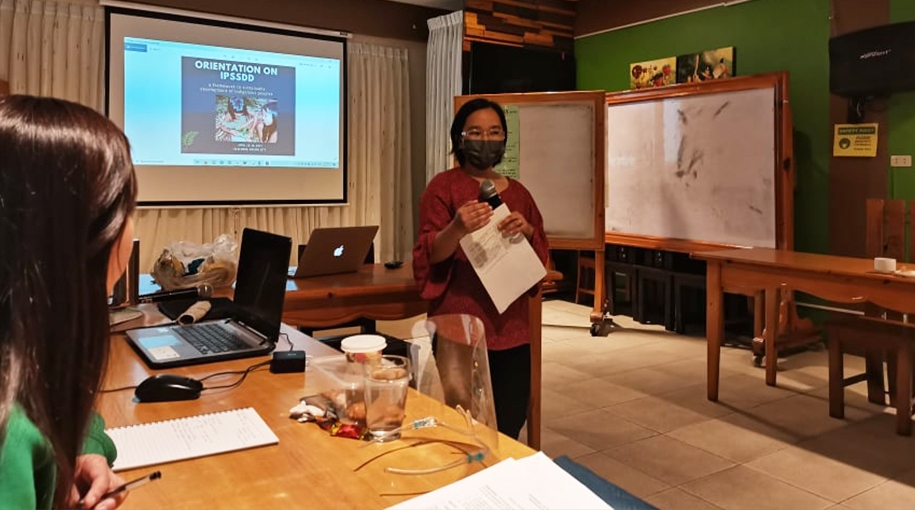“Upon learning about the Convention on the Elimination of All Forms of Discrimination Against Women (CEDAW), I know that in the future, I can also be an instrument in stopping the discrimination [of women] in my own little ways. I can also, at the same time, give knowledge to other people about discrimination and gender equality.”
Sharimae Arranz, one of Tebtebba’s new staff, enthused on the benefits of learning the CEDAW, the women’s bill of rights and also one of the significant thematic discussions during the Indigenous Peoples’ Sustainable, Self-Determined Development (IPSSDD) training that took place on 26 to 28 April 2021 in Baguio City, Philippines.
The training was engaged in by six new staff members of Tebtebba, most of them coming from the Finance Department. The event aimed at acquainting the new staff with the IPSSDD framework which, then, predominantly guides the whole mission and vision of Tebtebba as it lobbies for the acknowledgement, respect, and promotion of indigenous people’s rights all over the world. With support from Bread of the World, the event was facilitated by Tebtebba’s older staff members through a peer-to-peer learning format.
“There is a need for us to ensure the practice of Free, Prior and Informed Consent (FPIC) in the extraction of information from indigenous peoples,” Victoria Tauli-Corpuz, former United Nations Special Rapporteur on the Rights of Indigenous Peoples and Tebtebba executive director, emphasized as she provided the opening remarks during the seminar. She then stressed the significance of continuing Tebtebba’s goal to strengthen and multiply indigenous communities who are capable of asserting and protecting their rights in relation to the full realization of human rights.
The trainings sessions revolved around the diverse approaches contained in the IPSSDD Framework: the human rights-based approach, knowledge-based approach, ecosystems approach, sustainable economic sufficiency, intercultural, inter-generational, and gender dimensions including their utilization in the different programs work.
“We must call for the practical translation and implementation of all declarations and decisions related to indigenous peoples,” Grace Balawag of Tebtebba’s Climate Change Adaptation and Mitigation Program posited as she iterated the importance of continuing the pursuit for indigenous peoples’ sustainable development through amplified self-determination.









